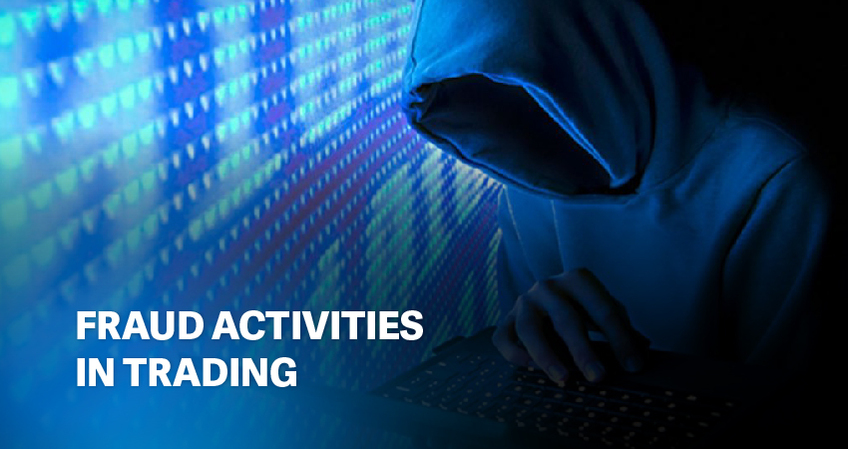Fraud Activities in Trading
Fraud activities in finance refer to deceptive and illegal practices carried out with the intention of obtaining money, assets, or other financial benefits through dishonest means. These fraudulent activities can occur in various sectors of the financial industry, including banking, investment, insurance, and other financial services.
What are some of these fraud activities?
Some common types of fraud activities in finance include:
· Identity Theft: When someone steals personal information, such as Social Security numbers, credit card details, or bank account numbers, and uses it to make unauthorized financial transactions or open accounts in the victim's name.
· Credit Card Fraud: Involves the unauthorized use of credit card information to make purchases or withdraw cash from the victim's account.
· Phishing: Fraudsters create fake emails, websites, or messages to trick individuals into providing sensitive information like passwords or account details.
· Ponzi Schemes: A fraudulent investment scheme where returns are paid to earlier investors using the contributions of new investors, rather than from profits earned by the operation of a legitimate business.
· Insider Trading: Occurs when someone with access to confidential, non-public information about a company uses that information to trade stocks or securities for personal gain.
· Embezzlement: The misappropriation of funds by an individual entrusted with handling finances, such as an employee stealing money from their employer.
· Forgery: The creation of false financial documents, signatures, or records to deceive others for financial gain.
· Money Laundering: The process of disguising the origins of illegally obtained funds to make them appear legitimate.
· Fraudulent Loans: When individuals or entities provide false information to obtain loans they are not eligible for or have no intention of repaying.
· False or Misleading Financial Statements: Companies or individuals provide inaccurate or misleading financial information to deceive investors, regulators, or other stakeholders.
· Pyramid Schemes: Similar to Ponzi schemes, where participants recruit others into the scheme and earn money based on the recruitment, rather than on the sale of products or services.
How to Take Measures
In this modern digital age, financial fraud has become a widespread issue that poses a threat to individuals, businesses, and the economy. The various types of fraud activities can cause significant financial and emotional harm to victims.
· The first step in protection against financial fraud is to raise awareness about the different types of fraudulent activities and the tactics employed by fraudsters. Being informed about the latest fraud trends and scams can help individuals recognize potential threats and take appropriate precautions. Regularly following reliable sources, news, and government alerts can provide valuable insights into emerging fraud patterns.
· Traders should exercise caution when sharing personal information, both online and offline. It is essential to verify the legitimacy of financial institutions, investments, or products before making any financial decisions. Responding to emails or phone calls that ask for sensitive details can expose individuals to phishing attempts or identity theft. Educating oneself and family members about safe online practices, creating strong passwords, using two-factor authentication, and avoiding suspicious websites are crucial preventive measures.
· Regularly monitoring bank and credit card statements can help identify any unauthorized transactions promptly. Enabling transaction alerts and notifications can provide real-time updates about account activities, allowing individuals to respond swiftly to suspicious transactions. Additionally, using secure and reputable online payment platforms for financial transactions and avoiding conducting such activities over public Wi-Fi networks can protect individuals from potential data breaches or financial losses.
Protecting yourself and your financial assets not only ensures personal security but also contributes to the collective well-being of our communities and the overall stability of the finance industry. To secure your data and assets from these fraudulent activities, it is crucial to adopt a comprehensive approach that combines awareness, preventive measures, and strong regulatory frameworks.

